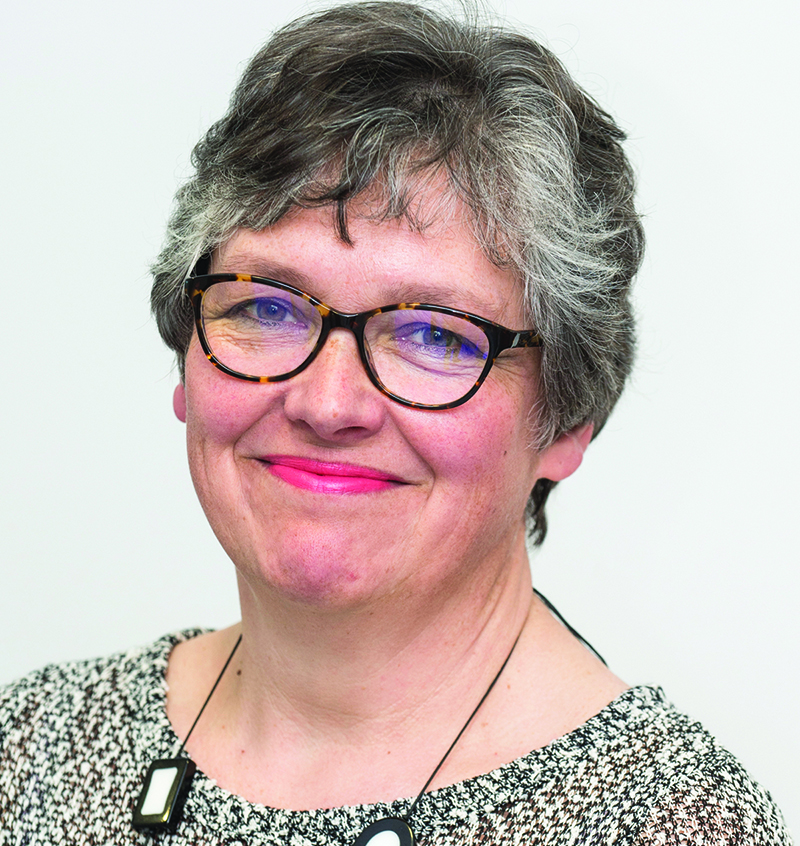
By Ann Allen, chair of Women in Property Scotland board
IT is widely understood that a diverse workforce is better for business. There is a much-quoted McKinsey report, ‘Delivering through diversity’, which cites greater profitability for those organisations with more women on their boards and with greater gender, ethnic and cultural diversity.
Scotland is not short of senior women doing great things in our industry and we know our universities can boast some seriously impressive young women looking to enter property and construction but, nevertheless, women still only make up 11% of the overall industry workforce and, shockingly, only 1.5% in construction.
There is a disconnect in the skills pipeline, between early career and those senior roles, which has long hampered career development for many highly skilled and educated women. It is at mid-career when the main drain happens, women who leave because they reluctantly decide they cannot balance their chosen career, with other responsibilities. Every woman who leaves the industry at this stage is one less senior woman later contributing at the highest level and that isn’t good for business, or diversity.
We know that a clear career path, training and mentoring are really important. Retention of women is dependent on properly rewarding them throughout their career. An honest, trusting, flexible work environment will reap dividends for both parties, in terms of loyalty, staff retention and the bottom line.
We also know that strong role models have a very positive impact on younger people, whatever their sector or walk of life. Let’s name-check a few of these role models: Gillian Ogilvie has recently taken over as managing director of Will Rudd Edinburgh. Karen Pickering is the chair of the board at Page\Park, winner of the 2020 Scottish Design Awards Architecture Grand Prix, and Nicola Barclay leads Homes for Scotland. We are also seeing women leading influential membership organisations such as Christina Gaiger, president RIAS, Rachel Skinner president, Institution of Civil Engineers and Maria Franké chair of the planning and development group of the Scottish Property Federation.
These women all make the case for diversity in the built environment sector, while organisations including Equate Scotland and Construction Scotland Innovation Centre, as well as Women in Property, are doing a terrific job in raising awareness and giving women a platform.
But we can’t rest easy just yet because, if the situation was poor before, it has been exacerbated by the Covid pandemic. In Scotland, the take-up rates between men and women for furlough were equal but HMRC analysis suggests men are more likely to be retained by their employers than women (Scottish Government Economic Brief October 2020). The ONS reported last year that during the first weeks of lockdown women were carrying out on average two-thirds more of the childcare duties per day, than men, very many struggling to juggle this with working from home. School closures have also impacted mothers more than fathers, with twice as many having to take unpaid time off, to care for their children. Yet again, it is women’s careers that are being impacted.
There is, however, one aspect of the pandemic – working from home (WFH) that might well be a quantum leap in the right direction for our industry. For years, flexible working has been, at best, unusual, not the way things are done but it is also one of the key ‘asks’ from employees. Lack of flexibility, an unwillingness to relax ‘core hours’, however they may be defined, is often the final straw for a woman, forcing her to give up her role, taking her skills, knowledge and professional acumen with her. What a waste.
Suddenly, over a space of a few months, WFH has leapfrogged into the public – and boardroom – consciousness. If we park the childcare issues that so many have had to deal with, the actual principle of WFH is hugely popular. Undoubtedly many of us will be very happy to head back into the office again, to meet colleagues face to face, discuss projects, head to site meetings; but to be able to focus this on two or three days a week, the rest of the time working from home sounds like we might finally be approaching work-life balance. This could be a game-changer for all of us and for women’s careers in particular.
So, it seems that out of a problem comes an opportunity. Employers will retain their skilled staff and those staff will be in a happier position, both professionally and personally. And skills are what Scotland needs right now, given the Scottish Government’s recent announcement of £33bn investment in infrastructure, bringing 45,000 jobs, in addition to the new national planning framework and, of course, COP26 in November which will shine a critical spotlight on sustainability and climate change, a Green Recovery. All the more reason to protect and support diverse talent. It happens that this month we celebrate International Women’s Day, with its 2021 theme #ChooseToChallenge. I would ask business leaders to challenge themselves – is your business equitable, are you flexible, do you have a diverse talent pipeline? Are you fit for purpose?








